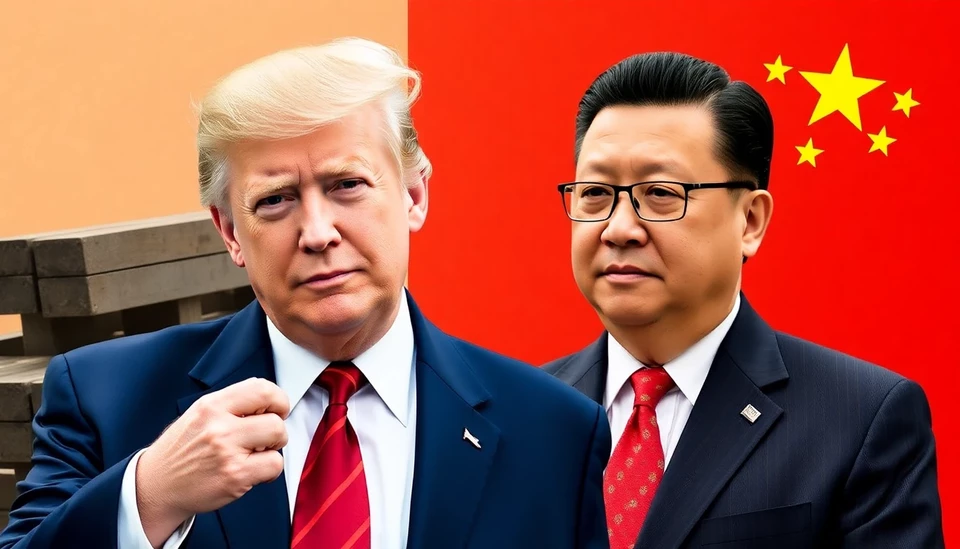
In a rapidly evolving economic landscape, former President Donald Trump is facing a significant challenge as his administration's tariffs collide with worsening economic conditions in China. As trade tensions between the United States and China continue to escalate, the implications of these tariffs are becoming increasingly complex and far-reaching.
The backdrop to this situation is a series of economic shocks that are shaking China to its core. Indicators of slowing growth, rising unemployment, and declining consumer confidence have raised alarms among analysts. Consequently, these developments are prompting the U.S. to reconsider its approach to tariffs, originally implemented to protect American industries from what were perceived as unfair trade practices by China.
Trump's tariffs, which have been a cornerstone of his trade policy, were aimed at reducing the U.S. trade deficit and encouraging domestic manufacturing. However, as China's economy faces deepening distress, the effectiveness of these measures is under scrutiny. Critics argue that instead of shielding American businesses, these tariffs are inadvertently exacerbating economic pain both domestically and internationally. With key industries relying on imports for their supply chains, the tariffs are pushing up costs, which may lead to higher prices for consumers.
The intertwining of economic policies and global markets means that both nations are at a crossroads. The United States is navigating the complexities of ensuring its economic recovery while weighing the potential fallout from continued tariff enforcement against an already fragile global economy. Meanwhile, China's strategy appears to be leaning towards stimulating domestic demand in an attempt to counteract the downturn.
In response to these shifting dynamics, experts are warning that further escalation of trade tensions could result in a trade war that might hinder economic growth on both sides. As negotiations stall, the uncertainty surrounding future trade policies may compel businesses to reconsider investments, potentially leading to a slowdown in growth worldwide.
Once regarded as a bold move to recalibrate the balance of power in international trade relations, the tariffs are now seen by some as outdated in light of the evolving economic situation. The need for a more nuanced approach that considers the current realities is becoming increasingly clear.
As both nations grapple with their internal issues and the impact of the tariffs becomes evident, stakeholders from various sectors will be closely monitoring developments. The question remains: will there be a shift in strategy that leads to renewed negotiations, or will the standoff continue, complicating the already precarious global economic landscape?
With the stakes high and the implications of policy decisions looming, the political and economic fallout from this situation will likely resonate long after the immediate concerns have been addressed.
#TrumpTariffs #ChinaEconomy #TradeWar #EconomicImpact #GlobalTrade #USChinaRelations
Author: Daniel Foster




